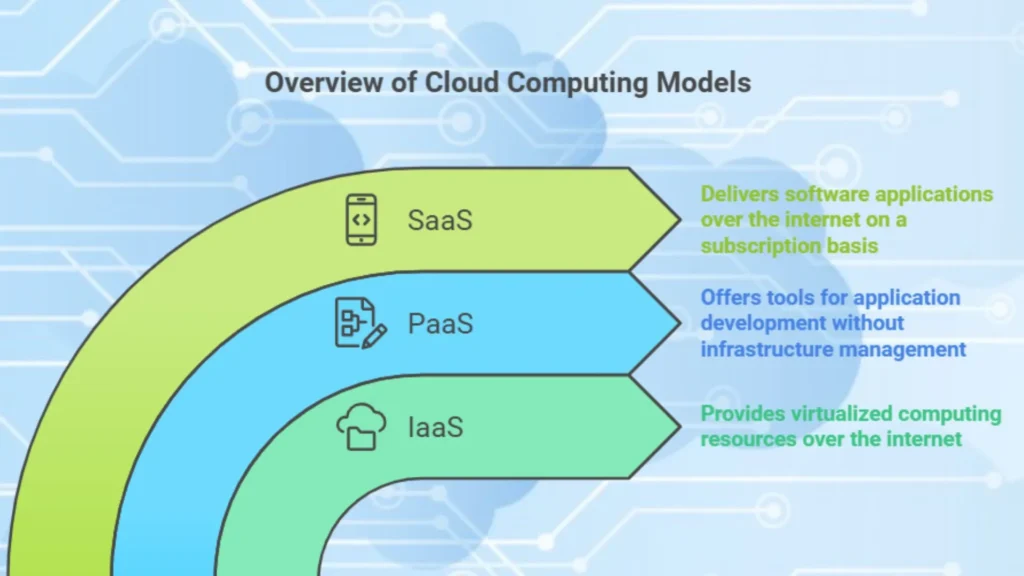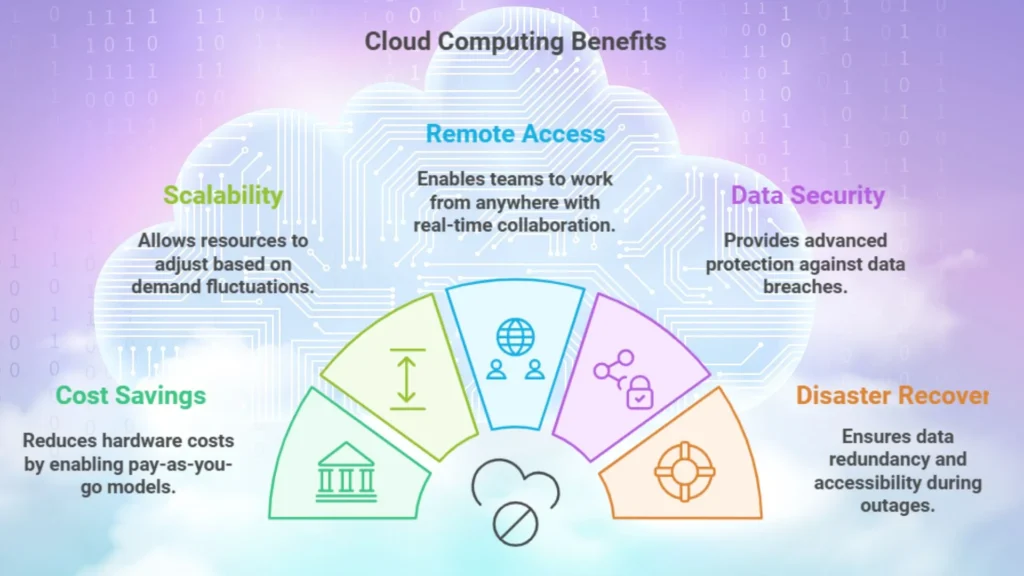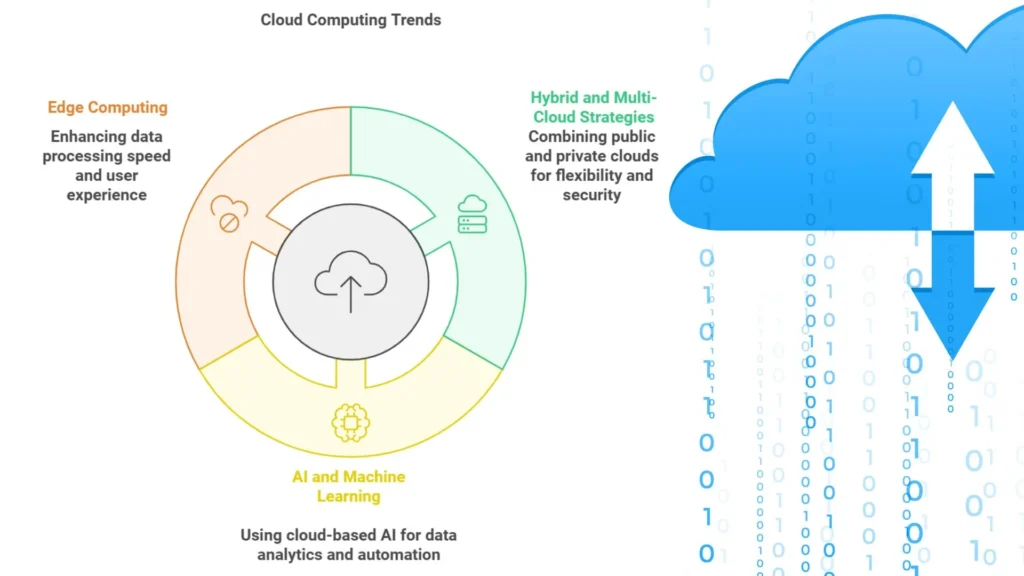Cloud computing has changed the way we use information technology for the business. Cloud computing offers flexibility, scalability and efficiency by providing access to computing resources over the internet, which traditional computing models cannot match.
In this blog article, we shall discuss what is cloud computing, its features, types, use cases and benefits in detail.
What is Cloud Computing?
Cloud computing allows users to access resources like storage, processing power, and applications over the internet rather than a local computer or server. Instead of storing data on a personal hard drive, cloud computing stores it on remote servers accessed through a secure internet connection. Cloud providers (e.g., Amazon Web Services, Microsoft Azure, Google Cloud) offer these resources, which allows flexibility and scalability for various business needs.
Key Cloud Computing Models
Following are the 3 major cloud computing models:

1. Infrastructure as a Service (IaaS):
Provides virtualized computing resources over the internet, such as servers and storage. Examples include Amazon Web Services (AWS) and Microsoft Azure.
2. Platform as a Service (PaaS):
Offers a platform hardware and software tools over the internet. This allows users to develop, run and manage applications without handling the underlying infrastructure. These tools are typically needed for application development. Examples include Google App Engine and Heroku.
3. Software as a Service (SaaS):
Delivers software applications over the internet, typically on a subscription basis (e.g., Google Workspace, Salesforce).
Benefits of Cloud Computing
Following are the main benefits of cloud computing:
1. Cost Savings: Reduces the need for physical hardware and maintenance. This allows businesses to only pay for what they use.
2. Scalability: Cloud resources can scale up or down based on demand; this is ideal for handling variable workloads. Small business can take advantage of this aspect.
3. Remote Access and Collaboration: With data accessible online, teams can work from anywhere and collaborate in real time. This saves lot of time wasted in communication, reduces rework and saves resources.
4. Data Security: Many cloud storage solutions providers implement advanced security measures and regular updates. This provides greater protection against data breaches.
5. Disaster Recovery: Cloud storage solutions provide data redundancy. This ensures critical information remains accessible even during local outages.

Use Cases of Cloud Computing
Cloud computing and cloud storage solution providers are used in major industries as mentioned below:
- Businesses: Enhances operational efficiency and reduces IT costs.
- Healthcare: Improves patient care through secure data storage and in the field of telemedicine.
- Education: Supports e-learning platforms and virtual classrooms.
- Entertainment: Powers streaming services and online gaming platforms.
Examples of Cloud Based Applications
– Google Workspace (Docs, Drive, Sheets): Enables real time collaboration and file sharing services.
– Dropbox and OneDrive: Popular cloud storage solutions which allows users to store, access and share files securely.
– Asana and Trello: Project management tools that streamline tasks and team communication.
Cloud Computing Trends Shaping the Future
We look forward for following trends and technologies in future for cloud computing and storage:

1. Hybrid and Multi Cloud Strategies:
Many businesses adopt a hybrid approach, combining public and private clouds to maximize flexibility and security.
2. AI and Machine Learning:
Cloud based AI capabilities allow businesses to use data analytics and automation.
3. Edge Computing:
Combining cloud power with on device processing (like IOT) for faster data handling. This reduces latency, and improves user experience.
Conclusion
For businesses of all sizes, cloud computing gives a competitive edge to the businesses by enhancing flexibility, reducing costs and supporting collaboration. If you are a small startup or an enterprise, use cloud computing to focus more on growth and innovation rather than infrastructure management.
As cloud technology advances, adopting cloud solutions or your business, can empower you to work smarter, collaborate better and stay secure in the global market.

